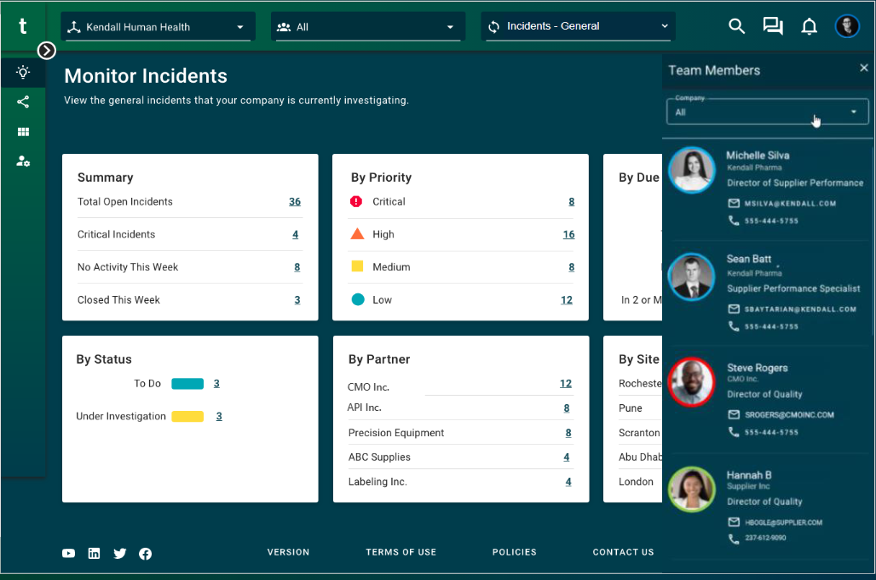Table of contents
Agile Process Team for Supply Chain Issue Management (APT-SCIM) provides a structured process and enables internal and external teams to work together in a single application using the same data.
Supply chain issues can originate from a wide variety of internal and external sources. That is why the ability to easily collaborate across internal and external cross-functional subject matter experts is a key requirement for success. For many companies, however, this is challenging because resources are quickly pulled together when needed and teams tend to rely heavily on emails and video calls for communication and data collection.
Email forwarding and CC’s are the primary way to find the right subject matter experts needed to resolve an issue properly. Supply chain partners rely on emails sent to their “point of contact,” often a procurement category manager, not the subject matter expert that needs to be part of the resolution process. As a result of these ad hoc approaches, issues can take weeks to resolve, exacerbating the disruptions associated with delays in resolution.

When supply chain issues occur, it is important to have a structured process and solution to engage the right internal and external resources immediately. Agile Process Teams for Supply Chain Issue Management (APT-SCIM) provides out-of-the-box structured supply chain processes and enables internal and external teams to work together in a single application using the same data. With APT-SCIM, you can define process teams that are composed of internal and external subject matter experts. You can create as many process teams as needed to bring the right skill sets to different types of issues or supply chain partners. Dashboards can be filtered by process teams to make it easy for each team to keep track of their open issues and immediately identify any issues that have been assigned high or critical priority. APT-SCIM provides both internal and external team members with:
- Assignment notifications when action is required
- Real-time visibility into who is responsible for the next step in the resolution process
- Clear understanding of issue status
- Due dates and alerts when issues are past due
- Historical record of issue resolution steps to aid in continuous improvement efforts
Let’s use a material shortage issue as an example. A material shortage will impact your ability to manufacture a product. Left unresolved, it could shut down a production line and lead to missed shipments and lost revenue. You will need to work with your supplier to understand the magnitude of the shortage and when it will be resolved. Depending on the answer from the supplier, you may need to engage the planner to determine the impact on manufacturing, possibly change production schedules, and engage the commercial team to determine the impact on customers. For a severe shortage, you may need to engage procurement to source from an alternate supplier or onboard a new supplier. In this example, you would have likely engaged with 4-5 functional departments in your company and at your supply chain partners’ companies to resolve the issue.
Today, at most companies, this issue would be addressed with an ad hoc process based on emails and phone calls with no structure. Resolving the issue typically involves daily status meetings, sporadic updates, and lost time determining the status of an issue and finding the right internal and external subject matter experts. On average, this results in resolution processes that take 3-5 or more weeks to complete, and it will likely impact your ability to deliver products on time and in full.
TraceLink’s APT-SCIM solution enables you to establish a process team composed of employees from planning, manufacturing, procurement, and supply chain with their counterparts externally at the supplier or other partners. As the issue resolution process progresses, it might be decided by planning, manufacturing, and the supplier that the shortage will be filled soon enough and will have no impact after some minor rescheduling. If a material shortage is determined to be a long-term problem, procurement can easily be engaged and tasked with finding an alternate source.
APT-SCIM’s real-time dashboards ensure that everyone has visibility into the resolution process, and managers can quickly assign more resources if necessary. In practice, using the process team approach, companies have been able to reduce resolution time by as much as 65%.
Learn more in our Supply Chain Issue Management Resource Center.






